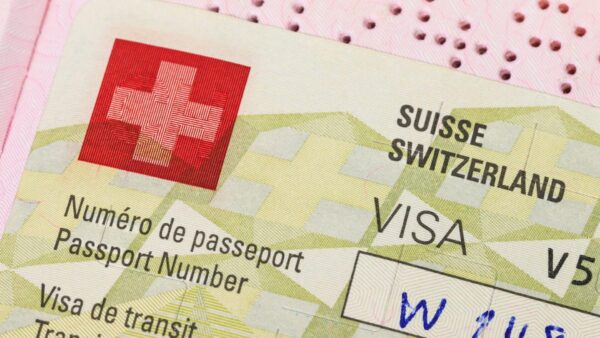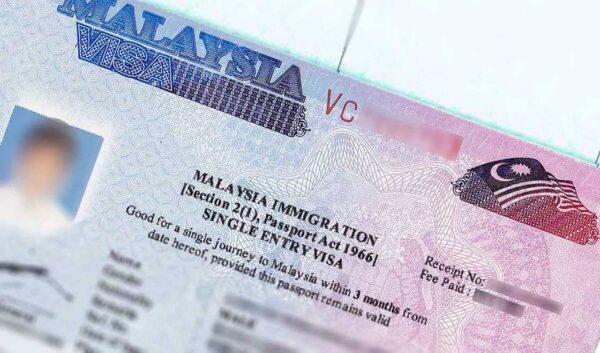Portugal is growing in popularity among travelers from Europe and worldwide because of its stunning scenery, wide range of unique cultural experiences, and sensible prices. But what other way to enjoy these long-term benefits than considering Portugal immigration?
Before relocating to Portugal, you need to know the entry requirements, visa types, and immigration rules. Besides, knowing the right information is important to make your transition smooth and ensure an efficient process. So, let's explore all the details and dynamics of Portugal's immigration process for those looking to make the country their new home.
Why Should You Consider Moving to Portugal?
There are many benefits to consider immigration to Portugal. Here are the benefits of Portugal immigration:
1. Fast & Easy Way of Opening Bank Account
In Portugal, opening a local bank account is quite easy. You may even open an account online with numerous banks, and you can do so from outside the nation. However, there are occasionally distinct accounts available for non-Portuguese citizens, with fewer restrictions than local bank accounts.
2. Low Cost of Living
Portugal offers a significantly cheaper cost of living than many other countries, meaning that you may live comfortably for a relatively small amount of money. This includes rent and grocery prices. Rent is roughly a quarter of what it would be in New York City and approximately a third of what it may be in London. This is among the reasons why it’s among the most popular immigration destinations to relocate to.
3. Friendly Portugal Citizens
Portugal has a kind and hospitable culture that awaits both foreign citizens and residents. Even though many citizens of the nation do not speak English, they are nonetheless kind and accommodating to visitors. Specifically, the neighbors are friendly and frequently get together for afternoon coffee.
Portugal Entry Requirements
To enter Portugal, everyone (non-EU citizens) must have a valid visa and a residency permit, except for EU/EEA citizens and legal residents of Switzerland. These documents can be obtained before arrival at a Portuguese embassy or through immigration authorities.
Meanwhile, EU, EEA, or Swiss citizens can relocate permanently to Portugal without a visa if they're employed, studying, or have a Portuguese relative/family. All they have to do is register their stay with the Portuguese authorities in the area after three months.
Portugal Visa Types
Depending on your country of origin, duration of stay, and reason for your trip, you may require a visa to visit Portugal. There are various types of visas for Portugal, each with its purpose and duration of validity. Let's examine them.
1. Short Stay Visas
The short-stay visa, often known as the Schengen Visa, allows foreign citizens to stay up to 90 days within 180 days. You may wish to start with a Short-stay visa if you are unsure about moving to Portugal and would just like to visit and see the country first. Examples of short-stay visas include transit and tourist visas. Also, you can be granted short-stay visas for other purposes, including:
- Temporary work
- Business purposes
- Medical
- Sport
- Family visits
- Other brief visits or seasonal stays in Portugal
2. Temporary Stay Visas
With a temporary visa, you can stay in Portugal for up to a year. Multiple entries are permitted, allowing you to briefly leave the nation. Compared to the Short-Stay Visa, things get a little trickier here. Temporary stay visas are available for medical care, sporting activities, seasonal work, scientific research, professional studies, and other purposes.
In other words, you must be in the country for a specified purpose and be able to demonstrate your financial self-sufficiency. A Temporary Stay visa is required for all foreign nationals visiting Portugal for longer than 90 days but less than a year, with the following exceptions:
- Portuguese permanent residents
- Family members
- Other EU/EFTA nationals
Here are a few examples of temporary stay visas:
Temporary work visas: In order to work in Portugal for any length of time between ninety days and a year, you must apply for this visa. This applies to non-EU nationals. One can apply for a Portuguese work visa for several reasons, such as:
- Amateur sports activity
- Academic or scientific work
- Freelance or self-employed work
- Long-term seasonal work
Study visa: This visa is valid for any duration of the study program in Portugal, ranging from three months to a year. Secondary, graduate, and postgraduate education fall under this category.
Internship, volunteering, or professional training visa: This visa is intended only for short-term professional training, voluntary work for a Portuguese nonprofit organization, or unpaid internships.
Medical treatment visa: This can be used for personal medical care within the Portuguese healthcare system or to travel with a family member receiving medical attention.
3. Long Stay Visas (Residency Visa)
This Portuguese national visa is valid for stays lasting more than a year. These visas will allow you to stay, work, or study in Portugal for a prolonged time. They’re perfect for you if you’re considering Portugal immigration! They may also pave the road for your eventual citizenship or permanent residence acquisition.
So, if you're considering Portugal immigration, long-stay visas are the way to go! Typically, to obtain a visa, you must apply at the Portuguese embassy or consulate in your home country. Once in Portugal, you must make an appointment with the Foreigners and Borders Service (SEF) to convert your visa application into a residence permit. Here are the different types of Portuguese long-stay visas:
Work Visa
You must apply for a work visa at the closest Portuguese embassy or consulate to relocate to Portugal for work. In the meantime, your employer in Portugal must apply for a Work Permit on your behalf with the Portuguese Labor Authority or the Portuguese Immigration and Borders Service.
Once in Portugal, you must go to SEF to apply for a residence permit and then to the Social Security office to register and obtain a tax number. You can live and work in Portugal for a maximum of two years, with the option to extend your residency visa. After five years, you can submit an application for a permanent residence permit.
Student Visa
As a foreign citizen, you need to apply for a student visa to continue your studies in Portugal after being admitted to an educational institution of higher learning. After entering Portugal and receiving your visa from the Portuguese embassy, you must apply for a residence permit at the Portuguese Immigration and Borders Service or the Portuguese Labor Authorities. A student's residency permit is valid for one year and can be renewed yearly.
Family Visa
If you’re considering Portugal immigration, this is the visa for you. Your family members must have a valid residency permit or be Portuguese nationals for you to join them in Portugal. On the other hand, you must be a member of the immediate family before applying for a family visa. You are an immediate family member of a Portuguese resident if you are:
- A minor child.
- A spouse or registered partner.
- A dependent adult child.
- A dependent first-degree relative.
- A child cared for by the applicant.
- A minor sibling who is legally under the permanent resident's custody.
The family visa is valid at the same time as the sponsor's residency permit. After the initial two-year period, you can extend the validity.
4. Retirement Visa
To retire in Portugal, you need to apply for a visa as a third-country national. However, you can also apply for a retirement visa if you wish to reside there and not work. In this case, you can still sustain yourself financially with savings, pensions, and other assets.
5. Portuguese Golden Visa
The Portuguese Golden Visa is a form of investment scheme that provides Portuguese citizenship to people who invest in the country. The most popular investment is acquiring a minimum-value Portuguese property for €500,000. You get an initial one-year residency permit when you apply for a Golden Visa. If you seek a renewal, a two-year permit will be issued. You can then apply for permanent residency after five years.
Portugal Visa Requirements
Generally, you'll need the following documents for all Portugal visa types:
- The Portugal visa application form
- Passport-size pictures
- A valid passport
- Travel health insurance
- Travel itinerary
- Proof of sufficient funds
- Proof of payment of visa fee
- Portugal visa cover letter
- Proof of accommodation
Additional visa requirements
You'll need additional documents if you're applying for long-stay visas. This depends on your reason for relocation. Here are the documents you'll need depending on the purpose of your move.
- Original passport
- Criminal records
- Employment contract
- Letter of acceptance from Portugal school
- Portugal student visa application form (From the embassy)
- Proof of financial sustainability
- Identity documents of foreign family members
- Proof of family relationship
- Certificate attesting to the applicant's residency type's supporting family reunion.
- Birth certificate
- Parental consent if the family member is a minor
- A legal custody document for younger siblings.
- Evidence that the family member has been residing in their current home lawfully.
How to Apply for Portuguese Visas
Applicants should follow these procedures, which may differ significantly depending on various criteria, such as visa type and application location.
1. Get the Portugal Visa Application Form and fill it out. Visit the Portuguese Ministry of Foreign Affairs website to look up and download the Application Form.
2. Compile the necessary documents for a visa to Portugal. Submit the documents. The documentation submission process may require you to visit the Portugal Embassy, Consulate, or Visa Application Center, depending on your residence.
3. Pay the visa application fee. Depending on the kind of visa you want, you might be able to pay for your visa online at this point in the application process. If not, you will be required to pay at step 4.
4. Schedule a visa interview appointment. Nearly every applicant for a Portugal visa, including those who apply online, must show up for a visa appointment at the time of application. If you apply using the Portugal visa portal, you can schedule your interview online. If not, scheduling an interview may take days, weeks, or months. Alternatively, you might need to contact your application destination directly (by phone or email) to schedule an appointment.
5. Await the processing of the visa. Generally, this takes fifteen days, but it could take longer based on the facts of your case.
6. Collect your visa: You will be informed if your application was accepted or denied based on where and how you applied. If approved, you will need to pick up your passport so the visa can be attached. Then your Portugal immigration begins!
Where to Apply for Portugal Visa
Portugal visa applications are processed in embassies and consulates (and associated visa application facilities) worldwide. You can likely apply online for a Portugal visa. Even so, online applicants must still meet the conditions for a Portugal visa, which are only available at actual Portugal embassies, consulates, and visa application centers.
Portugal Visa Processing Time
Application processing times for visas to Portugal can vary. How long it takes for you to get your visa depends on several factors, including:
- Portugal visa type
- Your nationality
- Application destination
- Application completeness
Depending on this, you may acquire a visa within days, weeks, or even months of applying.
Portugal Visa Fees
- Schengen short-stay visas generally cost €80 ($87)
- Temporary stay visas cost €75 ($81)
- Long-stay visas cost €90 ($98)
Conclusion
Portugal immigration offers a warm welcome to individuals and families seeking a new life. With its different visa programs, relaxed residency rules, and mild climate, the country provides an attractive destination for those looking to relocate, invest, or retire in a beautiful European country.
















